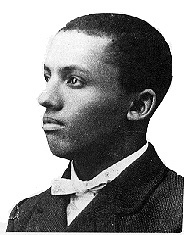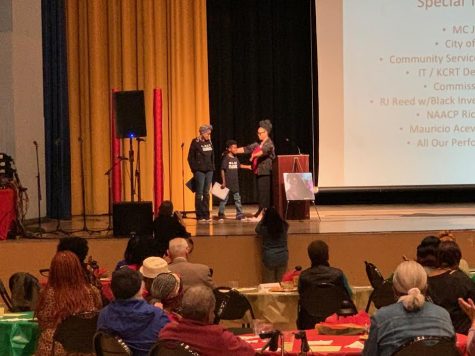Over 200 years of celebration… How did it start?
February 23, 2021

Pioneer for the celebration of Black History Month, Carter G. Woodson.
Why we celebrate Black History Month
Since its inception in 1915, the celebration of Black history has become a global tradition. Thanks to Carter G. Woodson’s hard work and plenty of shared enthusiasm amongst others, the recognition of Black history has grown from a small-time exhibit to a nationally-recognized time of reflection and appreciation known as Black History Month (Asalh.org, Scott).
America, joined by other countries like Canada and the UK, has come to designate an entire month to the increased study and recognition of Black history. This decision wasn’t spontaneous; instead, it took years of dedicated passion and honor for a worthwhile cause (History.com, Editors).
Carter G. Woodson was a Harvard graduate, just the second black man to earn that title. During his time at that university, his knowledge and understanding of his people’s impact and influence on humanity expanded greatly. Possessing an extreme passion for learning Black history, he cultivated a strong belief that the world, especially the Black community, should understand its culture and achievements.

Before color had even been added to photographs, Carter G. Woodson attended a festival celebrating the historical achievements of African Americans held in Chicago in the early 1900s.
In 1915, although the world was nowhere nearer to social reform or the awakening it would achieve in later years, a festival exhibiting Black society’s advancements and their achievements as a community, held in Illinois, attracted Woodson, who was just one amongst thousands. The event impressed Woodson, inspiring him to build upon the momentum it had created, and “On September 9th, Woodson met at the Wabash YMCA with A. L. Jackson and three others and formed the Association for the Study of Negro Life and History (ASNLH)” (Asalh.org, Scott).
From there, Woodson advocated for the increased celebration of Black achievement. He adopted the first version of what we now recognize as Black History Month, then known as Negro History Week. Set in February, the celebration capitalized on a period of remembrance for prominent historical figures in the Black community. Both Abraham Lincoln and Frederick Douglass were born in February, and Woodson hoped to build upon the awareness that came from celebrating their lives, which would give his organization some traction (Asalh.org, Scott).
In the years that followed, the dedication to celebrating Black history spread further and further across the country, then across the globe. In 1976 the event received its current title and expanded to encompass a full month. In the meantime, the recognition, learning, and teaching of Black history had become far more accessible and acceptable, just as Woodson had hoped (Asalh.org, Scott).
If he were here today, Woodson might have been surprised that Black History Month is still celebrated. For many, Negro History Week was meant to be a temporary arrangement (Asalh.org, Scott). However, there still exists the importance of preserving culture. By celebrating Black History Month, our community recognizes the value of each person and every culture, today, tomorrow, and into the future (nmaahc.si.edu, Bunch). This month reminds us that every one of us is capable of great things; everyone can rise above their circumstances, and everyone should help others achieve those goals.

Ceremonies and celebrations, like this one in Richmond, California, take place across the country to commemorate black achievements.
Sources
Article Title: Origins of Black History Month
Author: Daryl Michael Scott
Website Name: Asalh.org
URL: https://asalh.org/about-us/origins-of-black-history-month/
Access Date: February 14, 2021
Publisher: ASALH
Article Title: Black History Month
Author: History.com Editors
Website Name: History.com
URL: https://www.history.com/topics/black-history/black-history-month
Access Date: February 10, 2021
Publisher: A&E Television Networks
Last Updated: January 28, 2021
Original Publish Date: January 14, 2010
Article Title: Knowing the Past Opens the Door to the Future the Continued Importance of Black History Month
Author: Lonnie Bunch
Website Name: Smithsonian
Access Date: February 13, 2021
Publisher: Smithsonian
Chicago 1915 Photo
Carter G. Woodson Photo
https://commons.wikimedia.org/wiki/File:Carter_G_Woodson_portrait.jpg
BHM Celebration Photo




